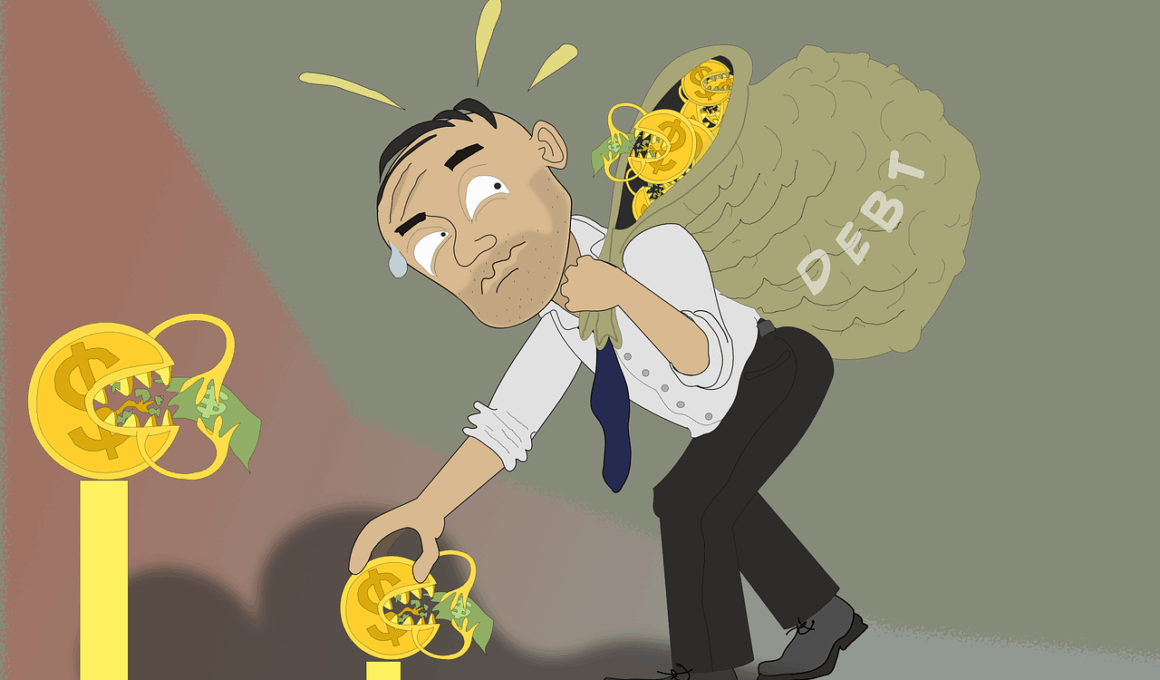Understanding the Credit Reporting Impact of Paying Off Loans
Paying off debt is a significant financial milestone, but it can also influence your credit score in surprising ways. When you settle a loan, you often expect your credit to improve. This expectation can sometimes lead to disappointment when you see your score fluctuate or even drop. One of the main factors that contribute to your credit score is payment history, which accounts for 35% of your total score. Paying off debt demonstrates responsible financial behavior, resulting in potential positive outcomes for your credit score over time. However, how and when you pay off debt can still impact your credit mix, which is another component of your credit profile. A diverse mix of credit types, such as credit cards, personal loans, and mortgages, can be beneficial. A healthy credit mix implies you can manage different types of credit responsibly. Therefore, if paying off a loan significantly alters the types of credit on your report, your score might take a temporary hit. Understanding these nuances is vital in approaching your financial decisions wisely.
The moment you pay off a loan, the immediate reaction may be positive, feeling accomplished that you have eliminated that financial burden. However, what many may overlook is that the impact on your credit score is not always straightforward. The key element is that once a loan is paid off, the account is marked as ‘closed’. This action affects your total credit utilization ratio, which is calculated based on available credit versus used credit. If the loan was your only installment account, its closure could potentially lower your credit diversity, and therefore, your score. Furthermore, lenders often analyze your credit history in detail, focusing on the longevity of your credit accounts. Closing older accounts can diminish your average account age, which is a critical factor in your overall score as well. Maintaining a balanced view on both paying off debt and keeping a diverse credit mix is important. Sometimes keeping a small remaining balance can even contribute to a better credit score if managed appropriately. Knowing these dynamics helps you make informed decisions about your financial future.
The Role of Credit Mix in Your Score
Your credit mix is a pivotal element of your credit profile. A healthy credit mix generally reflects well on your creditworthiness. It consists of various types of accounts, including revolving accounts like credit cards and installment accounts, such as car loans or mortgages. Having a diverse array of credit can potentially increase your score since it demonstrates your ability to manage different types of debt responsibly. When you pay off a loan, this can disturb your credit mix unless it is balanced by maintaining other open accounts. On the flip side, closing an installment loan by paying it off can lead to a less favorable credit mix in the long run. Lenders view this negatively, leaning toward potential risk when assessing your financial past and present. Ensure that while eliminating debt can relieve stress, it should align with a strategy that preserves your credit mix. Regularly reviewing your credit report can help in maintaining a healthy mix and understanding how changes in your credit accounts affect your score over time. Balance is key.
The final impact of paying off debt on your credit score also depends on how it aligns with other crucial factors. One of these factors is credit utilization, representing the percentage of your credit limits that you are currently using. Paying off a revolving account significantly lowers your utilization ratio, which can improve your score. Optimal credit utilization is generally recommended to stay below 30%. However, if paying off an account results in closing that account, this might ultimately alter your available credit cap. It’s essential to balance using your credit cards actively with responsible paying to ensure that you maintain a favorable credit utilization ratio over time. Another concern is the potential loss of historical data that assesses your credit performance over time. Credit agencies typically favor longevity in credit history. If you manage to pay off loans, retain some accounts, ensuring that you keep track of their performance, it can lead to a better score. The best approach is to understand credit dynamics fully in order to harness their potential for your financial benefit.
The Long-Term Effects of Paying Off Loans
While paying off debt brings immediate relief, the long-term consequences should not be ignored. Over time, paying off loans will likely reflect positively on your credit history, especially for those who consistently pay bills on time. A long-term perspective should consider how your credit profile will evolve. Occasionally, there’s a dip after paying off debt, but this does not mean a lost cause. With well-managed finances, that initial drop can be categorically seen as a part of a larger strategy to enhance your credit status. Continually practicing responsible credit behaviors, such as maintaining regular payments and being cautious with openings of new accounts, means your score is likely to recover. Utilize various credit types and maintain old accounts once they are paid off to keep your mix diverse. Planning to pay off debt in segments might also help in maintaining both optimal utilization ratios while also adding to your credit history. This ongoing strategy can create a favorable balance of both debt management and awareness of credit implications over time.
Many individuals make the mistake of only considering the immediate payoff benefits of eliminating a debt. However, overlooking the complexity of credit scores, especially after settling debts, can hinder future financial opportunities. A dropped score may result in unfavorable interest rates or even loan denial in future applications. Therefore, before swiftly eliminating any debt, it’s important to evaluate the impacts on your credit report thoroughly. For instance, it’s sometimes advisable to keep low-interest debts while focusing on higher-interest debts to pay off, allowing you to maintain diverse types of credit. The key lies in identifying which debts to eliminate without disrupting your credit mix and maintaining a responsible credit utilization ratio. Regularly reviewing your credit scores can also help assess where you stand. This ongoing awareness leads to making better-informed decisions about paying off debts and maintaining overall credit health. Implementing these strategies helps in finding a balance between becoming debt-free and ensuring areas of your credit remain untouched while strategizing future financial goals and trajectories.
Conclusion: Managing Debt and Credit Score
In conclusion, managing your credit score during the process of paying off loans is essential. While getting rid of debt can be liberating, it must be approached strategically to ensure favorable outcomes on your credit profile. Understanding your credit mix, payment history, and utilization ratio are integral to this journey. Each factor influences how your creditworthiness is perceived by lenders, and maintaining a healthy mix should be a priority. Consider scheduled payments over a period to ensure not only debt elimination but also stabilization of your credit score. Investing time to learn about credit dynamics, coupled with forward-thinking strategies, makes a significant difference in your overall financial health. The objective isn’t merely to pay off loans but to do it in a way that enhances your credit standing effectively. Stay committed to consistent payments, retain older accounts, and make use of credit monitoring services that help track movements in your score. With calculated actions, financial success is achievable while maintaining a positive credit profile for all future endeavors.
Understanding the impact of paying off loans on credit scores is crucial for making informed financial decisions. Many individuals focus solely on the immediate relief of settling debts without considering longer-term consequences. This article explores how managing debt responsibly can improve your credit profile over time. Regular payments foster a positive credit history and support maintaining a varied mix of accounts. Assessing your credit mix is essential for sustaining a favorable score while promoting financial stability. The intersection between paying off debt and maintaining credit sensitivity is a balancing act that requires mindfulness. Remaining aware of your credit utilization and average account age can help maintain strong creditworthiness. While paying off loans can yield fluctuations initially, the overall positive trajectory can emerge with ongoing responsible credit behavior. Integrating these practices results in an empowered financial approach and allows you to travel towards success confidently. Thus, understanding credit reports is imperative in finding harmony between debt management and cultivating a solid credit score.


